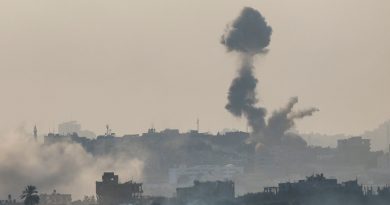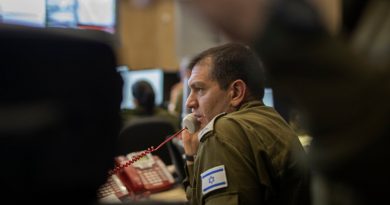Israel-Hamas War: Hamas Releases 16 More Hostages as Deadline for Extending Truce Looms

International pressure built on Tuesday for Israel and Hamas to extend a temporary cease-fire into an enduring halt to the war in Gaza, as China’s foreign minister, Wang Yi, warned the U.N. Security Council that a resumption of the fighting would “most likely, turn into a calamity that devours the whole region.”
Mr. Wang’s comments came during a Security Council session focused on the war, in which a fragile cease-fire has held since Friday. China holds the Council’s rotating presidency this month.
Many other foreign ministers, from Arab countries in the Middle East and the 15-member Council, also attended the meeting. A majority of them, joined by senior U.N. officials, called for the temporary truce to become permanent to prevent the war from spreading and to alleviate suffering in Gaza.
The war has taken a staggering toll on civilians on both sides. Hamas-led terrorist squads attacked Israel on Oct. 7, killing at least 1,200 and taking more than 240 people hostage, including women and children.
In response, Israel’s air and ground offensive has killed more than 14,000 people in Gaza, two-thirds of them women and children, according to Gaza’s health ministry, which operates as part of Hamas’s governance of the enclave.
The U.N. says that 1.8 million of Gaza’s people, or more than 80 percent of the coastal enclave’s population, have been displaced.
António Guterres, the U.N. secretary general, has been calling for an end to the fighting for weeks, and on Wednesday he echoed his previous comments, telling the Council that an “epic humanitarian catastrophe” was unfolding in Gaza.
He said the Israeli military operations have killed more children “than the total number of children killed during any individual year, by any party to a conflict” since he took the helm of the United Nations in 2017. The Gaza health ministry and the U.N. have said thousands of children have been killed.
The temporary cease-fire was part of a deal that has included the exchange of dozens of hostages held in Gaza for roughly triple that number of Palestinians held in Israeli jails. The truce has also allowed a significant increase in deliveries of humanitarian aid, including food, fuel and cooking gas, into the battered enclave.
Israel’s prime minister, Benjamin Netanyahu, under pressure from far-right members of his coalition government to reject extending the cease-fire, has insisted that the fighting will resume. On Wednesday, he said in a statement that “there is no situation in which we do not go back to fighting until the end” — an end that Israel has defined as annihilating Hamas.
At the Council session, Israel’s ambassador, Gilad Erdan, hewed closely to Mr. Netanyahu’s position, accusing those calling for a cease-fire of siding with Hamas, whose founding principle is the destruction of Israel.
Tor Wennesland, the U.N. special coordinator for the Middle East peace process, told the Council that the international community must mobilize to engage with Israel and Palestinian authorities for a lasting political solution. “The only viable path is one that leads to the realization of a two-state solution,” Mr. Wennesland said.
The U.S. ambassador to the U.N., Linda Thomas-Greenfield, said the United States wanted to see an extension of the cease-fire, better protection of civilians in the conflict and a two-state solution. But she stopped short of calling for an end to the war.
Before the Council meeting began, the foreign ministers of Saudi Arabia, Egypt, Qatar, Jordan, Turkey, Indonesia and Malaysia, stood together outside the Council chamber and told reporters that the conflict should not be allowed to resume.
Saudi Arabia’s foreign minister, Prince Faisal bin Farhan al-Saud, said that if the truce expired, “We will return to the killing at the scale that we have seen, which is unbearable. So we are here to make a clear statement that a truce is not enough.”
Source – NY Times




